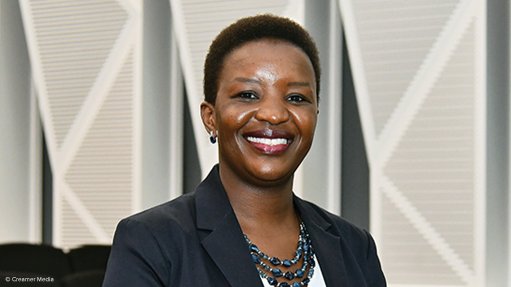
BLSA CEO Busi Mavuso
Business Leadership South Africa (BLSA) CEO Busi Mavuso has lauded the efforts of the Department of Health (DoH) and other stakeholders in administering 240 000 Covid-19 vaccinations last week.
She deems a 70% vaccination rate critical to not only reduce death rates but also to rebuild the economy.
She explains that the vaccination rate last week compares to or exceeds that of Israel and the UK, which have achieved normality in their economies.
Mavuso in her weekly newsletter states that the high vaccination rate must be maintained by improving access and incentivising people to be vaccinated, since access will become increasingly difficult as the programme continues.
She points out that South Africa has many hard-to-reach areas and commends the DoH for using mobile vaccination units to ensure comprehensive access.
The issue of incentives, on the other hand, is controversial.
Mavuso highlights that South Africa has not made vaccines compulsory, other than life-saving vaccines such as measles in children, but this is not the case globally.
For example, France forbids children without measles vaccines from attending public schools, while those who travel in Africa require yellow fever vaccine certificates to enter many countries.
The Covid-19 vaccine is already being treated like a passport, making it increasingly difficult to travel internationally without being vaccinated. But it is going beyond travel, Mavuso says, adding that vaccination is now a requirement to access restaurants or large-scale public events in New York and Greece.
“Any such measures would require that our vaccination programme provides reliable proof of vaccination for those who have received their jabs. A simple verification technique, preferably in line with global digital standards that have now been established, is key.
“This is a matter of giving people access to their own health data and should be straightforward policy-wise. It is important that the government facilitate this.”
Mavuso states that public policy can drive some level of vaccine incentives, but the private sector can do so too.
Many employers have led the charge in supporting employees to access vaccines. Some employers can make vaccination mandatory where their employees are exposed to the public, such as restaurants, or work in close contact with each other.
She explains that businesses also have the right to control access – just as they can insist employees who are exposed to the public are vaccinated, they can insist that customers who are exposed to their employees or each other are vaccinated.
“As the vaccine programme continues, I expect to see businesses becoming more strident in requiring vaccination both from their customers and employees.”
Mavuso adds that there will be lots of ideological contestation about such measures.
“Those who refuse to be vaccinated may well proclaim that is their right, but it is also the right of the rest of us to protect ourselves from the risks posed by unvaccinated people, and to do whatever we can to reach the overall vaccination rates necessary for life to go back to normal,” she avers.
Moving beyond all lockdown restrictions is one critical component to the wider effort to drive an economic recovery, one that is going to start to turn around the rising unemployment trend, reignite economic growth and start to heal the damaged financial position of the State.
There are other important components, such as the structural reforms that business and government have been working hard to deliver.
These are among many steps that need to be taken. “But I feel positive that we are moving in the right direction, both on the vaccine programme and the economic policy changes needed.
“We all have a responsibility to maintain this momentum and getting ourselves vaccinated is the minimum we can do,” Mavuso concludes.